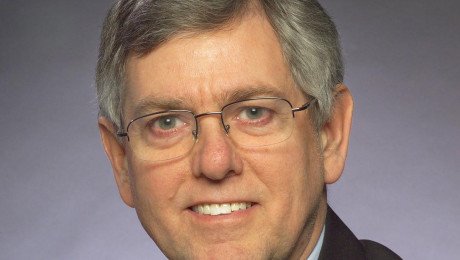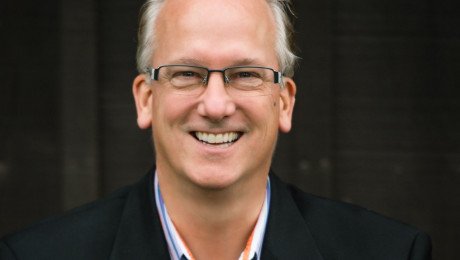Faculty Spotlight: Grace Ashline, Instructor of Human Services

Education:
BA in Sociology & Criminal Justice, SUNY Albany
Masters in Clinical Social Work, SUNY Albany, Magna Cum Laude
Equine Assisted Psychotherapy from Equine Assisted Growth and Learning Association (EAGALA)
Professional Affiliations:
Member of the National Association of Social Workers, Member of the National Organization of Human Services, Professional Development facilitator on mental health, academic retention, engagement and trauma informed influences within the classroom at MVCC, Collaborator with the Mental Health Association of NYS on mental health programming, education and trauma informed care in the classroom, Herkimer County chair for the Human Services Advisory Committee, HEROS qualified trainer on Trauma, Suicide Prevention, Behavioral Health and Substance Abuse, Court Appointed Special Advocate (CASA) for Family Court, Guest Facilitator at Schenectady County Community College and SUNY Albany for prevention programming and alternatives to compulsory placement for A.S. and B.A. programs, Previous chairperson for the Capital Region Consortium on Adoption & Foster Care, Previous chairperson for the Hard to Serve Committee of Schenectady County, Previous chairperson for the Community Action/Gang Prevention Committee.
Honors & Awards:
Recognized for client engagement and retention at Ellis’ Outpatient Day Treatment Psychiatric program, Received an award as “Advocate of the Year” by the Youth Advocate Program, Inc. in 2003 working with children at risk of compulsory treatment
What is something unique or important for people to know about your program?
I can unequivocally assert that the human services program is extraordinarily set apart from other programs offered here at Herkimer College. The very mission of the program speaks to the objective of meeting human needs and acting as change agents within the field for individuals who may not otherwise have a voice. The program seeks to experientially teach students the importance of crowding the empty spaces where marginalization and oppression are commonly over-looked. The program seeks to prepare students by teaching subject matters that set them apart from other programs and increase their employability within the field.
What inspired you to become an educator?
I stumbled upon an opportunity after having a conversation about my experience in social work and equine assisted psychotherapy with the Vice President of a college nearly five years ago. At that point, I had 12 years of experience working in the field of human services with a specialty in prevention working within a federal program for children who had lost a loved one to incarceration. I never imagined leaving or entertained the idea of teaching part-time. I remember stepping foot into the classroom filled with anxiety for what I can recall was physiologically foreign to every part of my being. I was entirely outside of my comfort zone until I started talking and engaging. By the end of the semester, I was captured by the students. It became clear to me that my upbringing, pathway in life and professional experience were all preparing me to be right where I ended up. It’s the perfect blend of merging social work and education in a program that can’t function successfully without the other.
What do you find most rewarding about teaching and why?
I love the demographic we serve and come in contact with. I have an opportunity to be the first face of exposing an 18 year old fresh out of high school to subject matters related to wellness and oppression to a 60 year old returning to school after decades of being in a classroom. Teaching is an honor and privilege. We’re in a position to execute the creative vision we hope to instill within the classroom and ignite passion for our prospective programs. The human services program is experientially designed to expose students to active engagement, critical thinking and to encourage them to think about subject matters they will actively come in contact with but aren’t popularly encouraged elsewhere. I love seeing that unfold and observing students go outside of their comfort zones to take risks that parallel that of what we expect of individuals we serve within the field. Sometimes I question if I learn more from them because of what they bring to discussions and the learning process than they do from me. That is the rewarding part about the reciprocity within the classroom experience.
What new courses do you hope to teach in the future?
I recently developed a course titled, “Trauma Informed Care” that will be offered to students in the fall of 2018. This is an innovative course that was birthed out of collaborative efforts with SAMHSA (Substance Abuse and Mental Health Services Administration) and the MHANYS (Mental Health Association of New York State) to help professionals understand that wellness is not in isolation of others and the cumulative effects of trauma within the human services field. Professionals across multiple disciplines need to understand the continuum of wellness and this course will specifically prepare students to understand the various types of trauma and how it directly impacts every area of a person’s life. This is a new course that is being offered at Herkimer College that sets us apart from other current Human Services programs and that is very rewarding.
What is something most people wouldn’t know about you?
One of the predominate conversations throughout all of the courses in the Human Services program is how our judgements, stereotypes and generalizations directly impact the work we do if we’re not courageous enough to be real about identifying what they are. We all have judgements, but it’s what we do with them that matter and hold the most weight to how we treat others; specifically who we may come in contact with in the field. Some of my favorite experiences with students is their commentary about who they perceived me to be at the beginning of class to their impression of me by the end of the semester. I like to break the stereotypes.
I have a picture of my parents within an eye sight of the wall in my office. It is to remind me of where I come from and to ensure that I never forget both the honor and privilege it is to be an educator. I am a first generation graduate where I flunked out of the same community college three semesters in a row. I came from a family wrought with domestic violence, substance abuse and mental health that I can proudly say gave me the necessary diligence and empathy to pursue a field in social work. Like many of our own students, I had little direction and was up against a lot of adversity. It took a professor at the community college I was repeatedly flunking out of to approach me about a strength she identified in my writing which was a coping mechanism precipitated out of pain. From there, a compliment turned into a hopeful possibility for a new direction in my life. I used to be ashamed to talk about where I came from until I realized that my story parallels that of so many. I now wear it as a badge of honor and remind myself that sometimes we are set aside to be set apart. I’m content there in that space and hope to inspire my students to set themselves apart too.
What are your hobbies and interests outside of work?
I like to reminisce about the days of having a Jeep Wrangler again, riding a motorcycle, traveling, risk-taking and reading a book without multiple distractions. All things prior to parenthood. If I’m not with the three arteries of my heart managing diapers, teething, potty-training and wrangling; I love to garden, cook, design, sing, dance and work on the “Grace Resurrected” blog and initiative I founded to resurrect the seemingly painful and vulnerable truths of mothering honestly, loudly and overcoming adversity.




